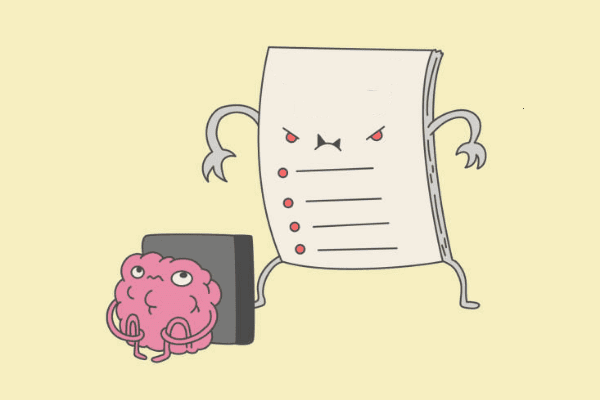Health for a lifetime >>>> How to deal with forgetfulness?
How to deal with forgetfulness?

Forgetfulness, like memory, is an integral part of human life and one of the aspects of the normal functioning of the brain. It has nothing to do with aging, but has everything to do with the intense work of the brain. The process of forgetting is the reverse side of the process of remembering. But very often, forgetfulness turns into a natural state in which the brain gets used to being, which also likes to “rest” from intellectual stress, just like, for example, the muscles of the arms and legs from physical fatigue.
The habit of refusing to train the brain to remember complex things turns into a chronic refusal to retain large amounts of information in memory. For example, it is easier to develop laziness of the brain than to remember complex combinations of phone numbers or passwords, than to remember all the calendar dates of the birthdays of friends. Another factor that provokes the development of forgetfulness is the reduction of frequently repeated tasks to automaticity and automatic execution.
The nature of the brain’s work on memorization is such that if it is not forced to remember any things, then there will be no memories of these things. Carrying out tasks automatically does not require retrieving information about them from memory - such work occurs at the level of unconscious execution of repetitive movements, clearly fixed at the level of reflexes. Mechanical actions lead to the fact that a person may not remember that the kettle or iron is turned off, or may not remember where he took or where he put a bunch of keys or documents.
The human brain has one feature that allows you to forget about “forgetfulness”, starting from any moment in a person’s life. The fact is that the intellectual functioning of the brain can always be corrected by starting to force the brain to remember and reproduce information. It is the compulsion to reproduce information (seen, heard or read) that forces the brain to work. Very simple and accessible exercises for everyone will help you get rid of forgetfulness and automatic execution of tasks.

Brain activity is always activated when information is first seen, heard or read, since the higher activity of the nervous system is structured in such a way that, regardless of human desires, the brain literally absorbs and begins to process unfamiliar information. This is the moment when it is necessary to force the brain to reproduce what has been seen, heard or read again. For example, reading the instructions for using any household appliance can be the starting point for eliminating chronic forgetfulness. The instructions read for the first time must be reproduced out loud from memory, at least partially (the brain can remember three or more percent of the text or drawing or diagram read or examined at once). Then read the instructions again the next day, and again reproduce out loud what you read or saw.
Another exercise allows you to fight forgetfulness - it is based on eradicating automatism and mechanical actions. The most ordinary task must be performed consciously, without turning off or switching attention. For example, ironing clothes or household items is often combined with watching TV or listening to the radio. And the moment of turning off the iron becomes of secondary importance and passes automatically. To get rid of the automatic execution of this task, it is necessary to do it with concentration, without parallel flow of information. The same automaticity effect occurs if you perform any actions while talking. Actions go into mechanical mode as soon as the brain switches to speech and hearing.
In the modern world, forgetfulness very often becomes commonplace due to the fact that a person needs to process large amounts of information in the shortest possible time. Thus, combining many things, a person tries to keep up with the times.
- Reading a book or electronic media is replaced by listening to audio information and driving a car or combining it with any other work activities.
- Multitasking leads to the loss of memory of a large number of ordinary things that need to be remembered.
- Going to the store with a large list of necessary products does not train, but relaxes the memory, causing brain laziness.
- Diaries and notebooks give the brain a rest, but at the same time, the memory “rests.”
To get rid of forgetfulness, you need to constantly remember different things, for example, news read the day before, an acquaintance you saw a week or a month ago, stories from your distant previous life. It is very helpful to eradicate forgetfulness by going over in your memory various secluded places in the house with the memory of what exactly is stored there.
When working to eradicate your forgetfulness, you should always remember that chronic forgetfulness is not a disease, but a neglect of the intellectual activity of the brain, which can and should be activated at any time.

Read

Read



























